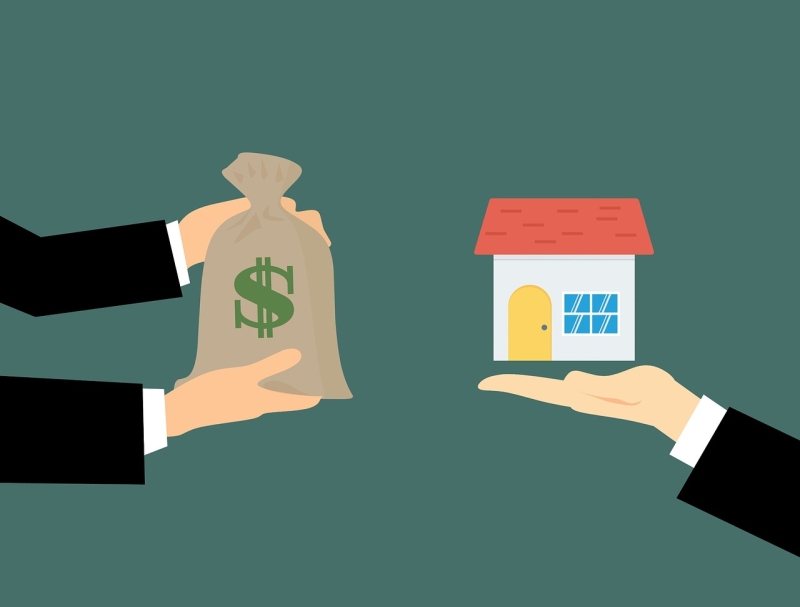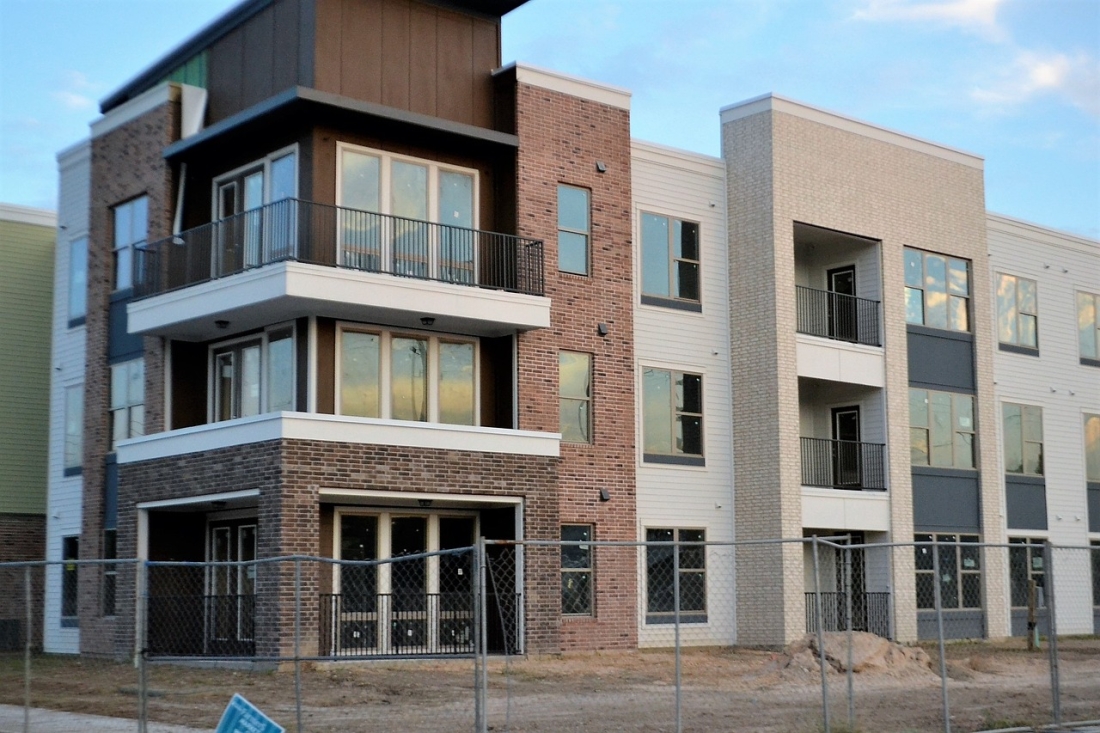Are you dreaming of owning a home in the Philippines? Making that dream a reality requires careful consideration of financing options.

In this article, we will compare two popular choices: Bank Financing and Pag-IBIG Financing. Discover the key differences, benefits, and application processes.
Understanding Bank Financing
Bank Financing plays a crucial role in the process of home buying in the Philippines. It involves obtaining a loan from a bank to finance your dream home.
Let’s delve deeper into Bank Financing and explore its advantages, disadvantages, and the steps involved in applying for it.
Advantages of Bank Financing
When considering Bank Financing for your home, several advantages come into play:
- Competitive Interest Rates: Banks often offer competitive interest rates, which can lead to lower monthly payments and long-term savings.
- Wide Range of Loan Options: Banks provide various loan options to suit different needs, including fixed-rate mortgages, adjustable-rate mortgages, and more.
- Accessible Locations: Banks have branches across the Philippines, making it convenient to access their services and seek assistance.
Disadvantages of Bank Financing
While Bank Financing offers numerous benefits, it’s essential to consider the potential drawbacks:
- Strict Eligibility Criteria: Banks have strict eligibility criteria, including credit score requirements, employment stability, and income verification. These criteria may limit accessibility for some individuals.
- Down Payment Requirements: Banks typically require a substantial down payment, usually a percentage of the property’s purchase price. This upfront cost can pose a challenge for some homebuyers.
Steps Involved in Applying for Bank Financing
Applying for Bank Financing involves a series of steps. Here’s an overview of the typical process:
- Documentation Requirements: Prepare necessary documents, such as proof of income, identification, property documents, and bank statements.
- Loan Approval Process: Submit your loan application to the bank for assessment. The bank will evaluate your financial situation, creditworthiness, and property value to determine loan approval.
- Disbursement of Funds: Once approved, the bank will disburse the loan funds directly to the seller or developer, enabling you to complete the purchase.
Understanding Bank Financing is essential to make an informed decision about financing your home. However, it’s equally important to explore alternative options such as Pag-IBIG Financing, which we will discuss in the following section.
Exploring PAG-IBIG Financing

If you’re considering alternative financing options for your home purchase in the Philippines, Pag-IBIG Financing is worth exploring. Let’s take a closer look at Pag-IBIG Financing, its purpose, advantages, disadvantages, and the application process.
Overview of PAG-IBIG Financing
Pag-IBIG Financing is a government-backed program offered by the Home Development Mutual Fund (HDMF), commonly known as Pag-IBIG Fund. Its primary purpose is to provide affordable housing financing options to Filipinos.
Advantages of PAG-IBIG Financing
Choosing Pag-IBIG Financing offers several advantages:
- Lower Interest Rates: Pag-IBIG Financing typically offers lower interest rates compared to commercial banks. This can lead to more affordable monthly payments and overall savings.
- Membership and Contribution Benefits: Becoming a Pag-IBIG Fund member and regularly contributing to the fund can provide additional benefits, such as access to housing loans, savings programs, and other services.
- Loan Limits and Terms: Pag-IBIG Financing offers flexible loan limits and repayment terms, accommodating various financial situations and preferences.
Disadvantages of PAG-IBIG Financing
While Pag-IBIG Financing has its advantages, it’s important to consider the potential drawbacks:
- Membership and Contribution Requirements: To be eligible for Pag-IBIG Financing, individuals must meet membership and contribution requirements, which include regular contributions to the fund.
- Loan Approval Process: The approval process for Pag-IBIG Financing may involve additional documentation and verification compared to bank financing, potentially lengthening the overall processing time.
Application Process for PAG-IBIG Financing
Applying for Pag-IBIG Financing follows a specific process:
- Membership Application and Contributions: If not yet a member, you need to apply for Pag-IBIG fund membership and make regular contributions for a certain period before becoming eligible for a housing loan.
- Eligibility Criteria and Loan Application Requirements: Once eligible, you can submit your loan application along with the necessary documents, such as proof of income, identification, and property documents.
- Loan Approval and Release Procedures: The Pag-IBIG Fund will evaluate your application, including creditworthiness and property appraisal, before approving and releasing the loan funds.
Exploring Pag-IBIG Financing opens up alternative options for financing your home. By understanding its purpose, advantages, disadvantages, and the application process, you can make an informed decision that aligns with your needs and financial goals.
Comparing Bank Financing and PAG-IBIG Financing

When it comes to financing your home in the Philippines, it’s crucial to compare different options to find the best fit for your needs. Let’s now compare Bank Financing and Pag-IBIG Financing, highlighting key factors such as interest rates, eligibility criteria, loan terms, additional fees, and flexibility.
| Factors | Bank Financing | Pag-IBIG Financing |
|---|---|---|
| Interest Rates | Varies by bank and market | Typically lower than banks |
| Eligibility Criteria | Strict credit and income requirements | Membership and contribution requirements |
| Loan Terms | Varies by bank and agreement | Flexible options available |
| Additional Fees | Appraisal, processing fees, and others | Appraisal, membership fees, and others |
| Flexibility | Relatively less flexible in terms of terms and conditions | More flexible options and benefits available |
Comparing Bank Financing and Pag-IBIG Financing side by side helps you understand the key differences between the two options. Bank Financing often provides a competitive interest rate, while Pag-IBIG Financing tends to offer lower rates.
Banks have stricter eligibility criteria, including credit and income requirements, whereas Pag-IBIG Financing has membership and contribution requirements.
In terms of loan terms, both Bank Financing and Pag-IBIG Financing offer flexibility, but the specific options may vary. Additional fees, such as appraisal and processing fees, are associated with Bank Financing, while Pag-IBIG Financing involves membership and appraisal fees, among others.
Flexibility-wise, Pag-IBIG Financing tends to provide more flexibility in terms of loan terms and conditions, along with additional benefits tied to membership and contributions.
By comparing these factors, you can weigh the pros and cons of Bank Financing and Pag-IBIG Financing to make an informed decision that suits your financial situation and goals.
Which Financing Option is Right for You?

Choosing the right financing option for your home is a crucial decision that can impact your financial future. To determine which option suits you best, consider the following factors and embark on a journey to find your ideal path.
Factors to Consider
1. Financial Situation and Stability
- Are you financially stable with a steady income?
- Do you have the capacity to handle potential interest rate fluctuations?
2. Long-Term Goals and Plans
- What are your long-term plans for the property?
- How does the financing option align with your future goals?
3. Eligibility and Affordability
- Do you meet the eligibility criteria for Bank Financing or Pag-IBIG Financing?
- Can you comfortably manage the monthly payments based on your income and expenses?
Tips for Making an Informed Decision
1. Research and Compare
- Gather information about both Bank Financing and Pag-IBIG Financing.
- Compare interest rates, eligibility criteria, loan terms, and additional fees.
2. Seek Professional Advice
- Consult with financial advisors or mortgage specialists.
- They can provide insights tailored to your specific circumstances.
3. Evaluate the Big Picture
- Look beyond the immediate financial aspects.
- Consider the long-term benefits, stability, and overall suitability of each option.
Seeking Professional Advice and Consultation
Navigating the world of home financing can be complex, and seeking professional advice can be your compass. Mortgage experts can guide you through the intricacies, helping you make an informed decision that aligns with your aspirations and financial well-being.
Remember, choosing the right financing option is like finding the perfect key to unlock the door to your dream home. Each option has its own unique shape, and it’s up to you to find the one that fits seamlessly into the lock of your financial journey.
Take the time to weigh your options, analyze your goals, and consult the experts. With careful consideration, you’ll discover the financing option that opens the door to a brighter future in your dream home.
The Importance of Credit Score

A credit score is a three-digit number that represents the creditworthiness of an individual. It is used by lenders, insurers and landlords to determine whether to extend credit, insurance or lease to someone.
A credit score is an important factor in determining an individual’s ability to obtain a loan and the terms of the loan. A good credit score can have a positive impact on a person’s ability to access credit and the terms of the loan they are offered.
The impact of credit score on home loans is significant. A good credit score can make the difference between being able to get a loan and not being able to get one.
Banks and other lenders use credit scores to determine the level of risk associated with a potential borrower. The higher the credit score, the more likely it is that the borrower will be approved for a loan.
A higher credit score can also mean better loan terms such as lower interest rates and more favorable repayment terms.
Having a good credit score is important for obtaining a home loan. Lenders look at a person’s credit score to determine how likely they are to pay back a loan.
A higher credit score indicates a lower risk, which means that lenders are more likely to approve the loan.
Having a good credit score also helps a person get the best loan terms. People with higher credit scores usually qualify for lower interest rates, which can save them money over the life of the loan.
Higher credit scores can also result in a lower down payment and better repayment terms.
Having a good credit score is important for obtaining a home loan. A good credit score can mean better loan terms and lower interest rates.
It is important to maintain a good credit score in order to have the best chance of getting a loan.
In Review
Congratulations! You have journeyed through the realm of home financing, comparing Bank Financing and Pag-IBIG Financing to find the key that unlocks your dream home.
Now, let’s recap the key points and set you on the path to success.
In this article, we explored the intricacies of Bank Financing and Pag-IBIG Financing, understanding their advantages, disadvantages, and application processes. We compared interest rates, eligibility criteria, loan terms, additional fees, and flexibility to help you make an informed decision.
Remember, your financial situation, long-term goals, and eligibility play pivotal roles in choosing the right financing option. Consider your stability, plans, and affordability as you embark on this exciting journey.
Research, compare, and seek professional advice to navigate the complexities with confidence.
As you stand at the crossroads of Bank Financing and Pag-IBIG Financing, envision your dream home and the life you aspire to lead. Select the financing option that aligns with your aspirations, ensuring a solid foundation for your future.
Whether you opt for the competitive rates and wide options of Bank Financing or the affordability and flexibility of Pag-IBIG Financing, trust that your choice will propel you closer to homeownership in the beautiful Philippines.
Now, armed with knowledge and expert guidance, take that leap towards your dream home. Embrace the joy of owning a place to call your own and cherish the memories that will unfold within those walls.
Remember, this is just the beginning of an incredible journey. Your dream home awaits, and with the right financing option, it will soon become a cherished reality.






